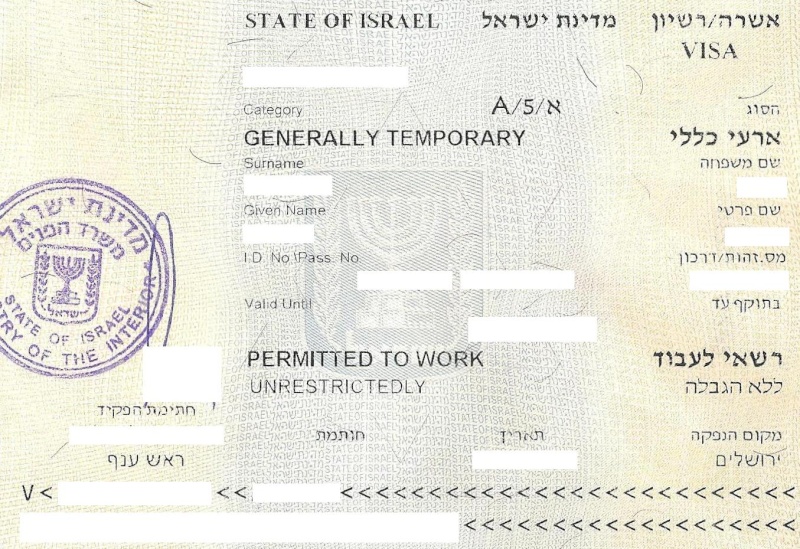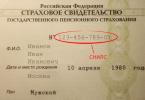- Repatriation.
- The conclusion of a marriage alliance with a Jew / Jewish woman.
- Reunification of the child with the parent.
- Obtaining refugee status.
Repatriation
Repatriation (from lat. repatriate - return to one's homeland) is regulated by the Law of Return. It secures the rights of Jews, as well as members of his family up to the third generation, for permanent residence. A Jew has the right to automatic citizenship of the State of Israel.
After long disputes and litigation caused by the influx of hundreds of thousands of Jews and non-Jews who wished to accept the citizenship of the State of Israel, the Knesset decided to define a Jew as a person born from a Jewish woman who did not voluntarily change religion, or as a person professing Judaism. Russians thinking about how to get a residence permit should take into account that nationality records made in the documents of another state are not accepted as evidence. In addition to personal documents (passports, photographs of all family members, work books, diplomas of education, certificates of no criminal record, with translations into Hebrew and English, certified by a notary), birth certificates up to the third knee are additionally requested. It is in the interests of a person applying for the status of a repatriate to collect all possible evidence, without allowing any corrections or forgeries. All references are carefully checked.
After the documents have been checked, an interview is scheduled, at which the purpose and motives of the move will be clarified, as well as other questions will be asked. The interview plays an important role, so it is advisable to prepare for it in advance so as not to cause unreasonable doubts about the sincerity of the answers.
After passing all the checks and an interview, you can apply for a residence permit for up to 5 years. This is a temporary residence permit, which gives repatriates a period of adaptation, with the subsequent right to obtain a permanent residence permit (permanent residence). Israeli minor children who arrived in the country of repatriates are issued an Israeli residence permit indefinitely. A repatriate who has received a temporary residence permit should be aware that absence from the country for more than 7 years may serve as a basis for depriving him of his status.
Requests for obtaining the status of a repatriate are accepted both at the consular departments of the Israeli Embassy in Russia, and directly at the Israeli Ministry of Internal Affairs when visiting the country. 
Marriage to a Jew
Obtaining a permanent residence permit in Israel for Russians is possible by entering into marriage with a Jew. The procedure for obtaining a residence permit in this case is as follows:
- Obtaining a work visa for a period of 1 year.
- Obtaining a residence permit for a period of 1 year with subsequent prolongation for 5 years, and in cases where the marriage is not officially registered, up to 7 years.
- Obtaining a residence permit indefinitely.
If the marriage is declared invalid or fictitious, the non-resident spouse is expelled from the country. In order to exclude fictitious marriage, spouses are monitored and frequent unannounced inspections are carried out, especially in the first 2 years after marriage. Spouses in unregistered relationships are subject to stricter control than spouses who are officially married. An unconditional way to avoid unnerving checks is to replenish the family.
In the event of a divorce, the spouse is also required to leave the country, unless he has already gone through all the stages of acquiring a permanent residence permit.
Reunification of a child with a parent
This method of obtaining a permanent residence permit involves two factors:
- the child, an Israeli citizen or a person with a permanent residence permit, must be an only child;
- the male parent must be over the age of 67, and the female parent must be over 65 years of age.
A person who wants to legalize the stay of a parent in Israel must have an impeccable reputation in relation to the Law. If a parent has another child who is not an Israeli citizen, but does not maintain contact with him, does not provide support to the parent, it is possible to legalize the parent's stay in the country through the court if the absence of assistance from this child is proved. It will also be carefully checked whether the child living in Israel really maintains contact with the parent. In case of successful completion of the legalization procedure, a parent from 67 to 70 years old is issued a two-year work visa. The visa period is reduced to 1 year if the parent is over 70 years old. Then a temporary residence permit is issued for a period of 2 years, followed by the granting of a permanent residence permit.
Getting refugee status
The only way to obtain a residence permit in Israel for Russians who do not have family ties in Israel is to acquire refugee status.
According to the definition of the Geneva Convention, a person who is persecuted on racial, religious, political grounds, for belonging to a certain sexual orientation, can be recognized as a refugee. In this case, the person must provide evidence of a threat to life and appeal for the protection of their rights to the authorities of their country, and not receiving it. Based on this, obtaining refugee status seems to be a rather difficult procedure.
After submitting an application to the Department of Refugees, a temporary visa and a temporary work permit are issued, until the completion of the consideration of the request for granting refugee status.
Persons who have a criminal record, have committed crimes abroad or have other problems with the Law will not be able to apply for a residence permit, as they pose a certain threat to society and the state as a whole.
In order to obtain a residence permit, the presence of real estate in Israel does not matter, as well as the financial situation of the applicant.
Attention! Due to recent changes in legislation, the legal information in this article may be out of date!
Our lawyer can advise you free of charge - write a question in the form below.




